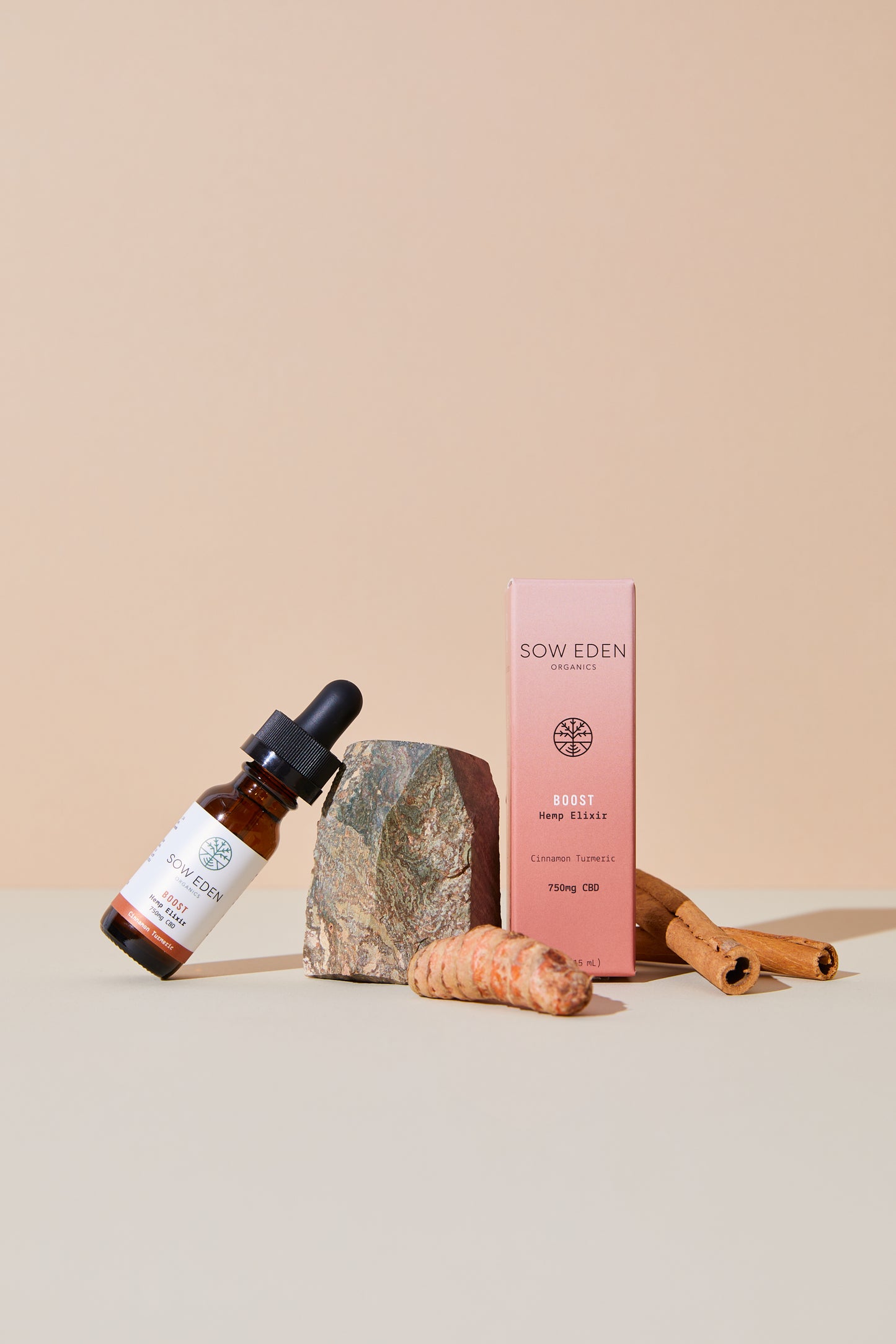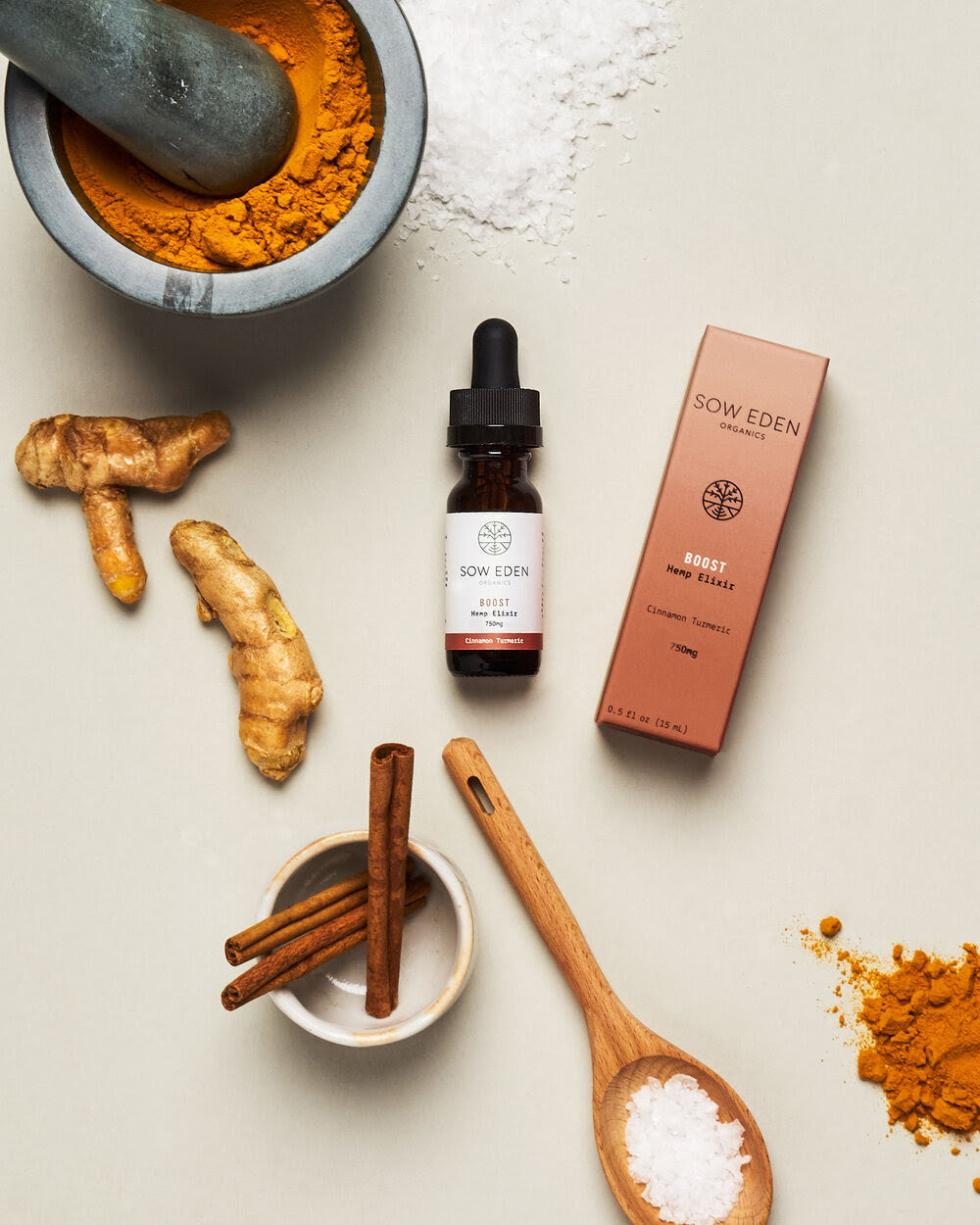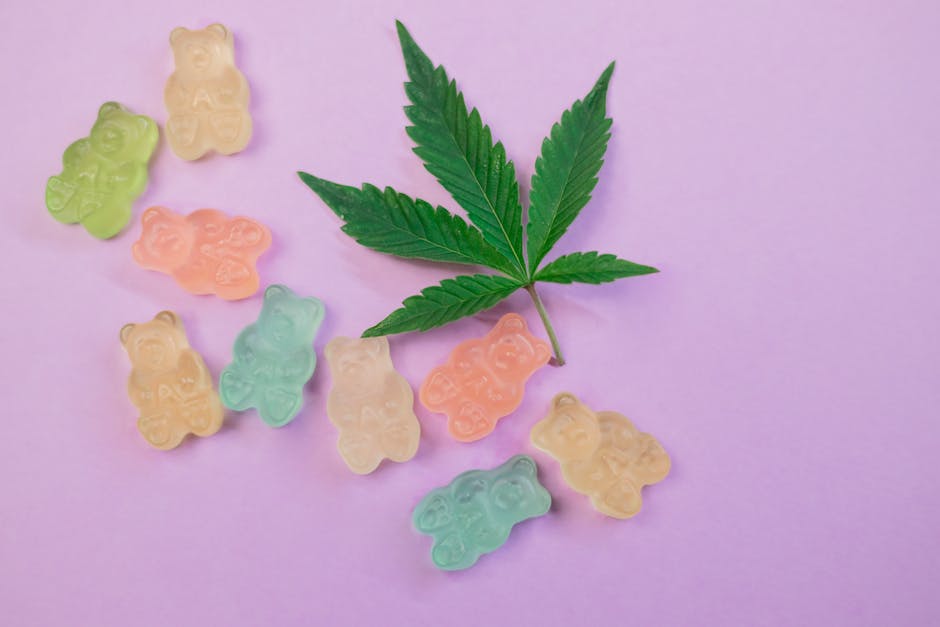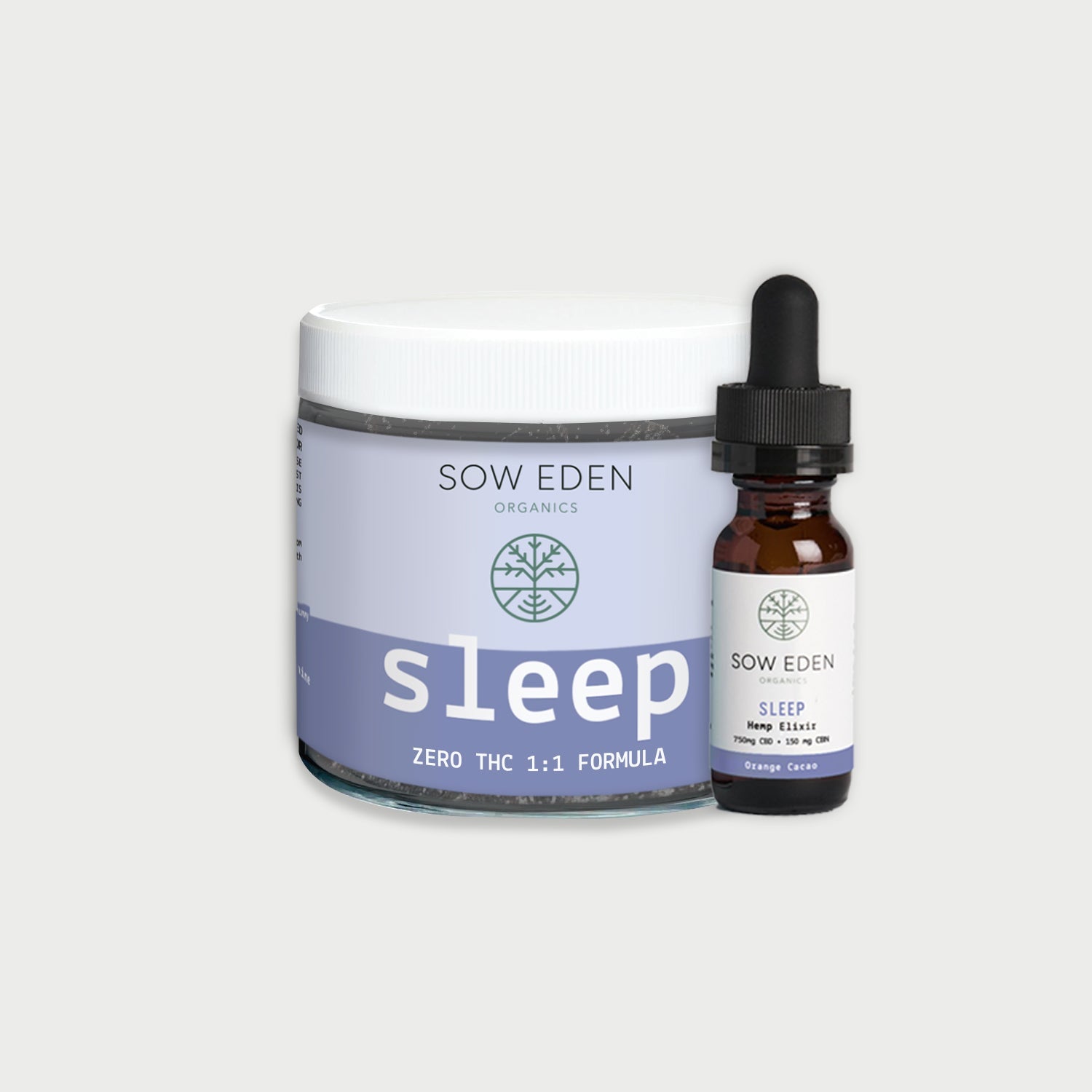What is organic CBD? Organic CBD is derived from hemp plants cultivated under stringent organic farming practices approved by the USDA. This means they're grown without synthetic pesticides, chemical fertilizers, or genetically modified organisms. Organic CBD not only adheres to strict farming protocols but also to processing standards that maintain the purity and integrity of the extract.
In recent years, the growth of organic products has surged, reflecting a larger trend towards health-conscious, sustainable choices among consumers. Organic CBD fits perfectly within this trend, as it offers a natural, toxin-free alternative to conventional wellness products. This shift towards organic parallels the increasing awareness of the impact of synthetic chemicals on health and the environment.

With organic CBD oil, consumers are not just embracing a wellness trend; they are partaking in a conscious shift towards more ethical, sustainable consumer practices that protect the environment and enhance health. This introduction aims to explore the definition, importance, and impressive growth of organic CBD. You'll discover the specific benefits, manufacturing processes, and reasons why choosing organic CBD is a worthy consideration for anyone invested in their health and the planet.
What is Organic CBD?
Understanding Organic CBD
When we talk about what is organic CBD, we refer to cannabidiol (CBD) products that meet strict agricultural and processing standards set by the USDA. These standards ensure that the product is made from hemp that is grown without synthetic fertilizers, pesticides, or genetically modified organisms (GMOs).
USDA Definition
The United States Department of Agriculture (USDA) defines organic products as those grown and processed according to federal guidelines addressing soil quality, animal raising practices, pest and weed control, and use of additives. For CBD to be considered organic, the hemp from which it is derived must be grown following these rigorous standards.
Hemp Cultivation
Organic hemp cultivation is a cornerstone of producing genuine organic CBD. This involves growing the hemp plant without the use of chemical pesticides, synthetic fertilizers, or sewage sludge. Farmers must use organic seeds, and the cultivation practices should enhance soil and water quality, promoting biodiversity.
Regenerative Agricultural Practices
Many organic hemp growers adopt regenerative agricultural practices. These practices go beyond basic organic farming by working to restore soil health and ecosystem biodiversity. This not only supports the growth of healthy hemp but also ensures the sustainability of the farming practice itself.
Processing Standards
Once the organic hemp is harvested, the processing must also adhere to organic standards. The extraction of CBD oil from hemp can be achieved through various methods, but for organic certification, permissible methods include:
- CO2 Extraction: This method uses carbon dioxide under high pressure and low temperatures to maintain the purity and integrity of the CBD oil.
- Lipid Extraction: This involves using organic fats or oils to absorb and encapsulate the hemp-derived compounds.
All additional ingredients used in the final CBD product, such as carrier oils or flavorings, must also be certified organic. This ensures that the final product is free from synthetic additives and retains its organic integrity.
Why It Matters
The strict guidelines for organic CBD ensure that the products are not only safe and free from harmful chemicals but also produced in a way that promotes environmental sustainability. Consumers who choose organic CBD are therefore investing in their health and the health of the planet.
As we delve deeper into the benefits and production processes of organic CBD, it becomes clear why this choice is beneficial for both personal wellness and environmental health. Moving forward, let's explore the specific health benefits and the environmental impact of choosing organic CBD.
Benefits of Choosing Organic CBD
Health and Wellness Advantages
What is Organic CBD and why should you care about its health and wellness benefits? Organic CBD, as defined by the USDA, ensures that the hemp from which the CBD is extracted is grown without synthetic pesticides or fertilizers and processed without harmful chemicals. Here’s why this matters for your health:
-
Toxin-Free: By adhering to organic standards, organic CBD contains no synthetic chemicals or toxins that could harm your body. This means a safer product for consumption with less risk of toxic exposure.
-
Nutrient-Rich: Organic hemp plants are grown in nutrient-dense soil that is not depleted by chemical treatments. This results in a CBD product that retains a higher level of natural vitamins, minerals, and cannabinoids, all of which contribute to the nutritional value and potential therapeutic effects of CBD.
-
Enhanced Potency: The absence of harsh chemicals and the presence of a rich, natural environment allow organic CBD to maintain a potent profile of cannabinoids and terpenes. This enhances its effectiveness, particularly in interacting with the body’s endocannabinoid system to regulate functions like sleep, mood, and pain.
Environmental Benefits
Choosing organic CBD is not only beneficial for personal health but also for the planet. Here are some key environmental impacts:
-
Sustainable Farming: Organic hemp cultivation practices support sustainable agriculture by avoiding the use of chemical pesticides and fertilizers that can degrade soil quality and harm surrounding ecosystems.
-
Supports Pollinators: Unlike conventional farming that often uses pesticides harmful to bees and other pollinators, organic farming practices promote biodiversity and the health of pollinators, which are crucial for the maintenance of many other plant-based food sources.
-
Cleaner Environmental Footprint: Organic farming methods reduce pollution and conserve water, significantly lowering the carbon footprint compared to conventional farming methods. This contributes to cleaner air, water, and soil, making organic CBD a more environmentally responsible choice.
By choosing organic CBD, you are opting for a product that promotes both personal health and environmental sustainability. This dual benefit makes it a compelling choice for consumers looking to make responsible and health-conscious decisions. As we continue to explore the nuances of organic CBD, it becomes evident that its advantages extend beyond mere consumption, influencing broader ecological and personal wellness landscapes.
How Organic CBD is Made
Cultivation and Harvesting
Organic CBD starts with the cultivation and harvesting of hemp. The United States Department of Agriculture (USDA) sets strict guidelines for what qualifies as organic farming. These standards ensure that the hemp used for organic CBD is grown without synthetic pesticides or genetically modified organisms (GMOs).
Farmers practicing organic cultivation use non-GMO seeds and focus on maintaining soil health and biodiversity. This is often achieved through regenerative agricultural practices which enhance the soil's natural nutrients and prevent erosion. These practices not only support a sustainable environment but also lead to the growth of robust hemp plants that are potent in CBD.
Extraction and Processing
Once the hemp is harvested, the next step is extracting the CBD oil. This process must also adhere to organic standards to ensure the final product can be certified organic.
The most common methods used are: - CO2 Extraction: This method uses pressurized carbon dioxide to pull CBD and other phytochemicals from the plant. It’s highly efficient and safe, ensuring that the extract is potent and free of solvent residues. - Lipid Extraction: This involves steeping the hemp in organic carrier oils, such as coconut or olive oil, to extract the cannabinoids. This method is natural and avoids the use of harsh solvents.
Both methods are preferred in the production of organic CBD because they don't introduce any synthetic chemicals to the extract. Moreover, the carrier oils used in these processes, like MCT oil or olive oil, are often certified organic, adding another layer of organic integrity to the final product.
By adhering to these stringent practices from seed to shelf, organic CBD products offer a pure, high-quality alternative to non-organic CBD. This meticulous process ensures that consumers receive all the natural benefits of CBD without exposure to harmful chemicals, aligning with the ethos of holistic wellness and environmental care.
Comparing Organic CBD to Non-Organic CBD
Why Organic Matters
When diving into CBD, the distinction between organic and non-organic products can significantly impact purity, potency, and environmental footprint. Here’s why opting for organic CBD is crucial:
Purity:
Organic CBD is held to rigorous standards. The cultivation process prohibits the use of synthetic pesticides, herbicides, and fertilizers, which means what is organic CBD is essentially free from harmful contaminants that could linger in non-organic products. This adherence to purity is not just about avoiding toxins—it's about ensuring that the CBD you consume is as nature intended.
Potency:
The potency of CBD can be influenced by the farming practices used. Organic hemp tends to be grown in richer, healthier soil which boosts its quality and the quality of the CBD extracted from it. Studies suggest that organic plants can produce a higher concentration of key beneficial compounds. Thus, organic CBD is often more potent and effective compared to its non-organic counterpart.
Environmental Impact:
Organic farming practices are designed to reduce pollution and conserve water and soil quality. By avoiding chemical pesticides and fertilizers, organic CBD farming helps maintain a clean and safe ecosystem. This sustainable approach supports biodiversity and leads to a healthier planet.
Toxin Accumulation:
The hemp plant is known for its phytoremediation properties, meaning it can absorb contaminants from the soil. While this is beneficial for cleaning up the earth, it can be problematic if the plants are not grown organically. Non-organic CBD might contain these accumulated toxins, potentially leading to harmful effects on health.
Synthetic Fertilizers and Chemical Pesticides:
The use of synthetic fertilizers and chemical pesticides in non-organic CBD production not only contaminates the plant but also affects the surrounding wildlife and water sources. These chemicals can lead to detrimental environmental effects, such as water runoff that harms aquatic life and soil degradation that impacts plant health and biodiversity.
In conclusion, choosing organic CBD is not just a personal health choice but a global environmental stance. By selecting organic, consumers advocate for a cleaner, more sustainable world while enjoying a product that is safe, potent, and closer to its natural state. This commitment to organic practices is essential for those who place a high value on both personal wellness and environmental responsibility. Understanding these distinctions helps consumers make informed decisions that align with their values and lifestyle needs.
Frequently Asked Questions about Organic CBD
What Makes CBD "Organic"?
Organic CBD refers to CBD products that are certified by the USDA. This means they are produced without the use of synthetic pesticides, genetically modified organisms (GMOs), sewage sludge, or ionizing radiation. To be labeled organic, both the hemp from which the CBD is extracted and the processes used to convert it into CBD oil must meet these strict guidelines.
For hemp to be considered organic, it must be grown in soil that has been free of prohibited substances for at least three years before harvest. Additionally, the farm must follow all other organic farming standards set by the USDA, which include crop rotation and using only approved substances.
How Does Organic CBD Impact Health?
Health benefits of organic CBD are significant, due to the absence of toxic chemicals and synthetic pesticides commonly used in conventional farming. These substances can remain as residues in the final products and are potentially harmful if ingested over time.
- Reduced Exposure to Toxins: Organic CBD is free from harmful synthetic pesticides and fertilizers, reducing your body's toxic burden.
- More Nutrient-Dense: Organic hemp plants grow in richer, healthier soil which boosts their nutritional profile. This means organic CBD might offer a richer spectrum of cannabinoids and terpenes.
- Potential for Fewer Side Effects: Without harsh chemicals, organic CBD is less likely to trigger allergies or other adverse reactions commonly associated with synthetic additives.
Where Can You Buy Trusted Organic CBD?
To purchase trusted organic CBD, look for products that are clearly labeled with a USDA Organic certification. This ensures that the CBD oil meets strict production and processing standards. Here are some tips for finding high-quality organic CBD:
- Online Retailers: Many reputable CBD brands sell directly from their websites, where you can access detailed product information, customer reviews, and lab results.
- Certified Dispensaries: Licensed cannabis dispensaries often carry a range of tested and certified CBD products.
- Health Food Stores: These stores frequently stock organic health products, including CBD oils that are certified organic.
Always check for a Certificate of Analysis (COA) when buying CBD products. This document, usually available on the seller's website, confirms that the product has been tested for CBD and THC levels, as well as for any contaminants.
In conclusion, choosing organic CBD ensures that you are consuming a product that aligns with healthier, more sustainable agricultural practices while also potentially benefiting from a higher quality and safer product.
Conclusion
When it comes to what is organic CBD, the choice is clear: quality matters. At Sow Eden, we are deeply committed to providing you with the highest quality organic CBD products. Our dedication to wellness extends beyond our products to encompass every aspect of our operation—from the seeds we plant to the final product that arrives at your doorstep.
Choosing Quality
Quality is more than just a buzzword for us; it's a promise to our customers. We understand that the CBD market can be overwhelming, which is why we've set strict standards for our products. Our CBD is derived from USDA-certified organic hemp, ensuring that every batch is free from synthetic pesticides and fertilizers. This commitment to organic practices means you receive a product that is not only safe but also potent and effective.
Sow Eden's Commitment to Wellness
Our mission at Sow Eden extends beyond selling products. We aim to educate and empower our community about the benefits of organic CBD. We believe that natural remedies, when used responsibly, can significantly enhance one's quality of life. This belief drives us to continuously innovate and ensure that our products meet the highest standards of purity and efficacy.
The Future of Organic CBD
Looking ahead, the future of organic CBD is bright. As more consumers become educated about the benefits of organic products, demand will continue to grow. At Sow Eden, we are excited to be at the forefront of this movement. We are continuously exploring new ways to improve our products and practices to ensure that we remain leaders in the organic CBD industry.
In embracing organic CBD, you are not only making a choice that benefits your health but also supporting sustainable agricultural practices that benefit our planet. We invite you to explore our range of products and experience the Sow Eden difference for yourself. Check out our collection of premium organic CBD products here.
By choosing Sow Eden, you are choosing a future where wellness and nature go hand in hand—a future we are proud to help build.






